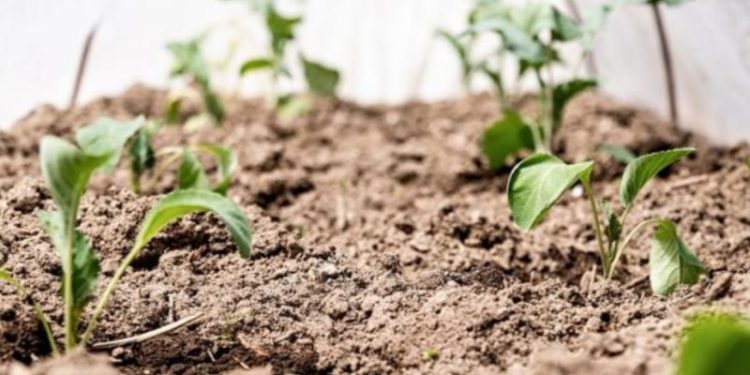In a significant stride towards enhancing potato cultivation, Tripura’s Horticulture Department has embraced a groundbreaking technique by employing apical rooted cuttings to produce high-quality potato seeds, as announced by an official on September 19.
Traditionally, farmers in this northeastern state grapple with low productivity and pest infestations, primarily due to the importation of potato seeds from other regions. To combat these challenges, the horticulture department has inaugurated a state-of-the-art greenhouse facility aimed at generating superior-quality seeds through apical rooted cuttings—a method that has gained popularity in Assam and Meghalaya. Deputy Director of the department, Rajib Ghosh, revealed that this innovative approach holds the key to resolving the persistent issues faced by local potato cultivators.
“Our initiative begins with an ambitious target: producing 50,000 high-quality potato seeds within the advanced confines of the hi-tech greenhouse located at the Nagicherra Agricultural Research Centre, merely 17 km away from the state capital,” stated Ghosh. He further emphasized the collaboration with the International Potato Center (CIP) in Peru, underlining the global dimension of this agricultural innovation. Apical cuttings, which are transplants originating from tissue culture plantlets and rooted in a greenhouse, form the core of this novel approach.
Rather than allowing tissue culture plantlets to mature and produce mini tubers, the process involves producing cuttings directly from the plantlets. Once rooted, these cuttings are carefully transplanted into the fields, yielding seed tubers of exceptional quality. Ghosh confirmed that these high-quality seeds would be distributed among local farmers, enabling them to cultivate superior-grade potatoes in their farmlands.
“The department envisions achieving self-sufficiency in a diverse range of potato seeds within the next five years, leveraging the potential of apical rooted cuttings. Importing seeds from other states is simply insufficient to meet the rising demands of potato production in our region. We firmly believe that this strategic initiative will alleviate the concerns of farmers dissatisfied with the existing seed quality,” Ghosh remarked. He expressed optimism about the prospect of farmers commercially marketing their potato seeds once this pioneering technique takes root in the local agricultural landscape.
Furthermore, Ghosh revealed that the department has already initiated comprehensive training programs for farmers, enabling them to seamlessly adopt this avant-garde method of potato cultivation. These training sessions are conducted with active technological guidance from the renowned International Potato Center in Peru, ensuring that local farmers receive the necessary expertise to implement this innovative approach effectively.
This bold step by Tripura’s Horticulture Department not only promises to revolutionize potato cultivation in the state but also underscores the importance of embracing cutting-edge techniques to bolster agricultural sustainability and productivity. With the active support of international expertise and local farmers’ dedication, Tripura is poised to become a trailblazer in the realm of innovative and sustainable potato cultivation methods.







